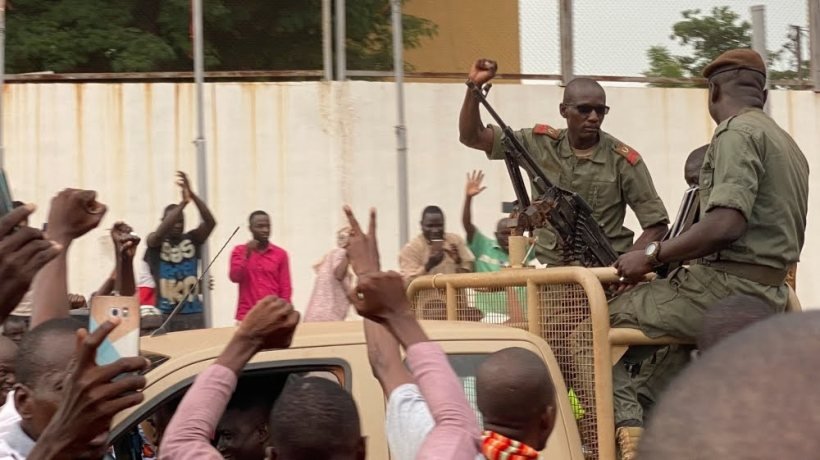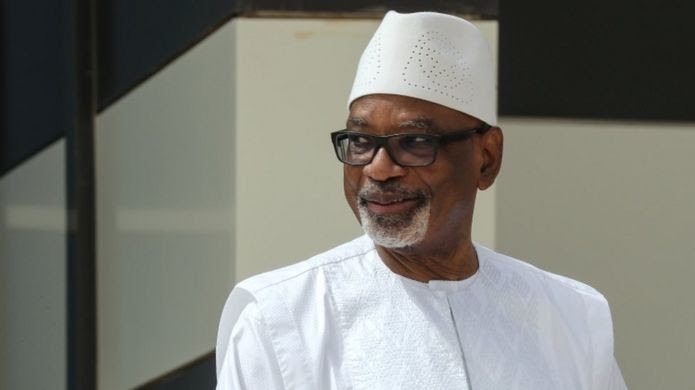The recent sociopolitical atmosphere in the West African country of Mali that has been fuming disdain from the major populace has had an outburst. With a trajectory of how Mali’s lingering political crisis culminated to President Keita’s resignation following a military mutiny, there is a need to have an oversight of the timeline of events that unfolds before the president abdicates the office.
For months, Mali has been engulfed in an escalating political crisis effected by large anti-government rallies and failed mediation attempts by regional leaders wary of further instability in the country.
However, there has been calm to the raging tension upon the re-election of President Ibrahim Boubacar Keita in 2018, an election opposition parties castigated for irregularities.
But, aggrievances broke out earlier this year following an electoral dispute on the results of parliamentary election, prompting tens of thousands to take to the streets demanding for Keita’s resignation. The demonstrators accused Keita of failing to fix the country’s dire economic situation and contain a years-long armed campaign by various groups that has killed thousands and rendered vast swaths of Mali ungovernable.
This tension metamorphosed to the coup on Tuesday when the soldiers arrested Keita, Prime Minister Boubou Cisse, and other top government officials, a dramatic escalation that was condemned by regional and international powers.

The sociopolitical friction started when the the second round of the parliamentary election held on April 19, was marred with incidents and attacks that prevented most voters to exercise their civic right of voting.
On 30th April, Mali’s Constitutional Court overturned the results for 31 seats, handing Keita’s party 10 more parliamentary seats, and which makes it the largest bloc. This court’s decision consequently sparks protests in several cities across Mali.
On 30th May, the main opposition parties, as well as civil society groups, form a new opposition alliance, called “Movement of June 5 – Rally of Patriotic Forces”, with this strong alliance calling for a massive demonstration to see Keita out of office.
The large movement led by influential Muslim leader, Mahmoud Dicke, thousands of people took to the streets of Mali’s capital, Bamako, on June 5, condemning what they described as the president’s mishandling of many crises plaguing the country.
Keita however reappointed Boubou Cisse as the prime minister on June 11, saddling him with the responsibility of forming an interim government.
In early July, Keita floats political reforms in a bid to appease opponents, but they are all rejected. The protest movement’s leaders continue to call for parliament to be dissolved and urge for civil disobedience.
Meanwhile, the mass protest turned violent on July 10, leaving at least 14 people dead in three consecutive days of clashes between security operatives and protesters. This was described as the worst political strife Mali has experienced in years.
With the peaceful mediation of ECOWAS delegation led by the erstwhile Nigerian President Goodluck Jonathan to ease the brouhaha encapsulating the francophone country, the June 5 Movement says the president’s departure is a “red line” for the mediators.
On July 27, ECOWAS calls for the swift creation of a unity government in Mali, with a stern warning of sanctions against those standing in the way.
The opposition rejects the plan and insists the president stands down.

Keita swore in nine new judges to the Constitutional Court on August 10, part of an ECOWAS suggestion for resolving the dispute.
Al Jazeera’s Nicolas Haque, who has reported extensively on Mali, noted that the new judges had been nominated by a Keita ally.
The appointments, Haque said, added “fuel to the fire in this feeling amongst protesters that Keita is abusing power by bringing allies close to him”.
The anti-government protests however got awakened on August 11, with demonstrators defiling pleas from regional mediators to avoid taking to the streets.
The following day, on August 12, Malian security forces fired tear gas, and used a water cannon to disperse hundreds of protesters who camped out at a square in the capital.
Upon the announcement of daily protests on August 17 which has been scheduled to mature to a full-blown mass rally in Bamako, Keita and Cisse were later detained by soldiers who earlier staged a mutiny at a key base in Kati, a garrison town just outside Bamako, on August 18.
Opposition protesters were seen gathering at a square in Bamako in a show of solidarity for the soldiers, while regional and international powers urge the troops to return to the barracks and foreign embassies advise their citizens to stay indoors.
Ultimately, Keita announced his resignation as Malian President at midnight on August 19.

